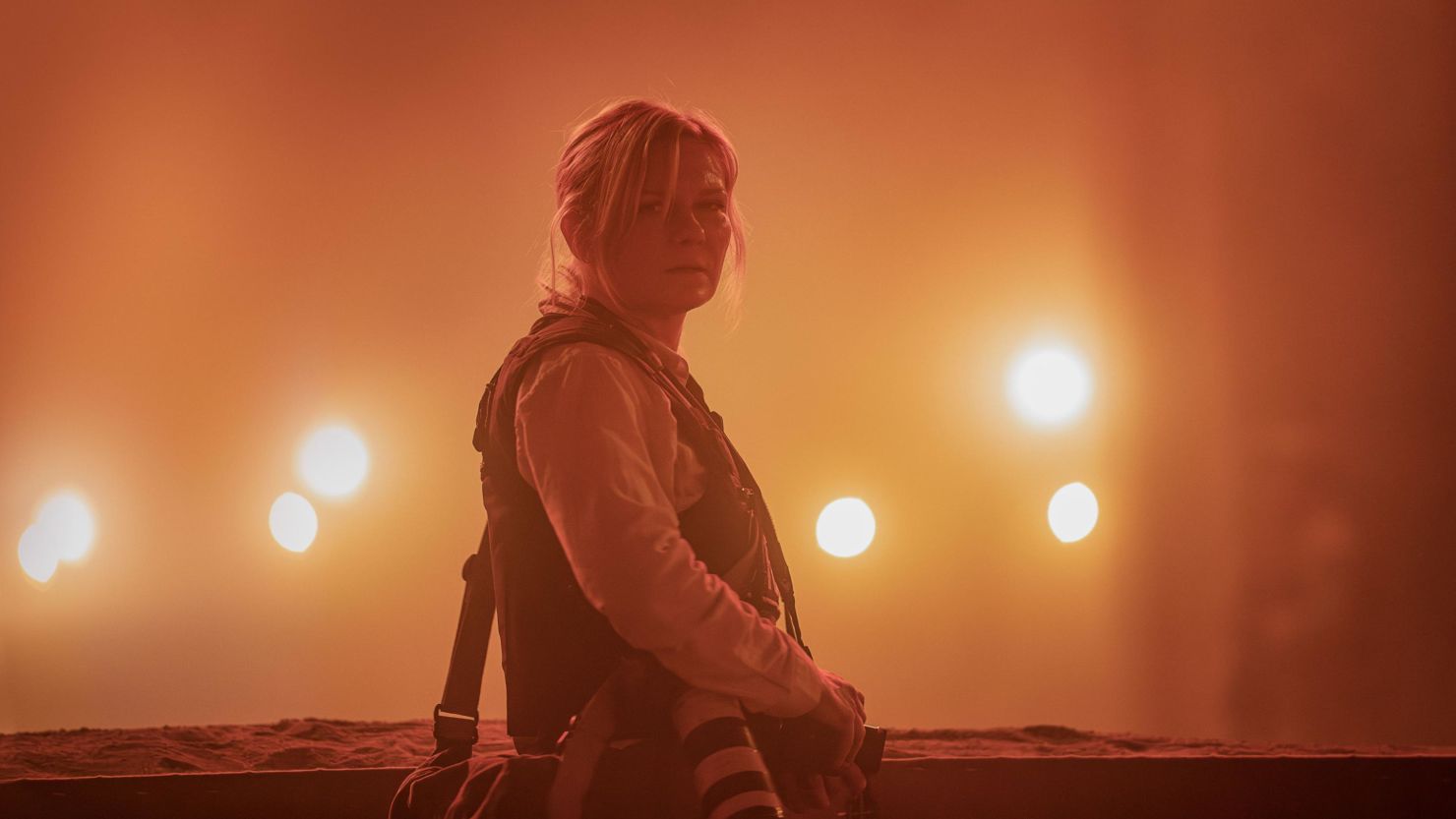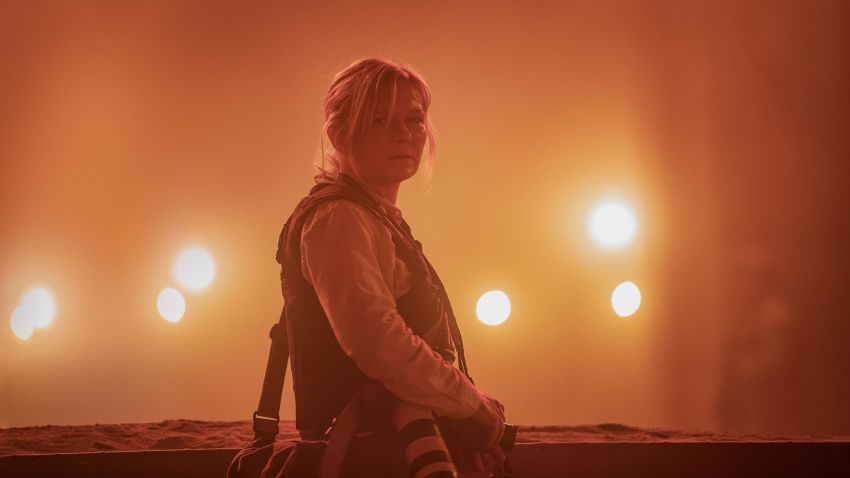The details of “Civil War” don’t make much sense – it’s hard to imagine California and Texas agreeing on much of anything, much less seceding together – but that’s not really the point of writer-director Alex Garland’s tense, visceral thriller. The images of the US turned into a war-torn country provides a sobering dystopian backdrop for an action movie that works on that level, without lingering in the mind as long as it could or should have.
Indeed, Garland might be known for cerebral sci-fi films like “Ex Machina” and “Annihilation,” but “Civil War” goes in a different direction, fueled by a sense of danger around every bend in the road. A quartet of journalists brave the trip – in a vehicle labeled “PRESS” in big letters – heading from New York to Washington, D.C., where the White House and a president (Nick Offerman, briefly) who has bombed his own citizens is under siege by something known as the Western Forces.
The journalists include two world-weary types, the widely traveled combat photographer Lee (Kirsten Dunst) and reporter Joel (Wagner Moura, of “Narcos” renown), as well as a newbie photojournalist (“Priscilla’s” Cailee Spaeny) and a grizzled veteran (Stephen McKinley Henderson) who tag along, much to Lee’s chagrin.
Released at a time when social media-amplified political voices in America have seldom sounded angrier or louder, the mere title and subject matter peg Garland’s film as an especially provocative and unsettling concept. The plot, however, forgoes any of the backstory that might deepen those aspects in favor of an episodic trip across a landscape defined by stark visual flourishes, from barren stretches of highway to sections filled with abandoned cars and dead bodies.
While the film establishes a budding if grudging mentor relationship between the two photographers, “Civil War” thus boils down primarily to its unnerving atmosphere and individual moments, fueled by the striking sound design and music. Of those encounters, none prove more harrowing than one involving random soldiers, one of whom is played by Dunst’s real-life husband, Jesse Plemons, who asks the reporters, pointedly, “what kind of American” they are.
In some respects, “Civil War” feels like a missed opportunity for what it leaves unaddressed, content to let the jarring notion of a war movie on American soil – like watching “Platoon” or “Full Metal Jacket” – speak for itself.
To the extent the audience is left grappling with unspoken questions, “Civil War” represents something of a departure from the nature of Garland’s previous films. Because while this alternate future derives considerable impact from planting roots in reality, what the director has delivered is less about political commentary or issuing some kind of warning but rather, fundamentally, a horror movie.
“Civil War” premieres April 12 in US theaters. It’s rated R.




